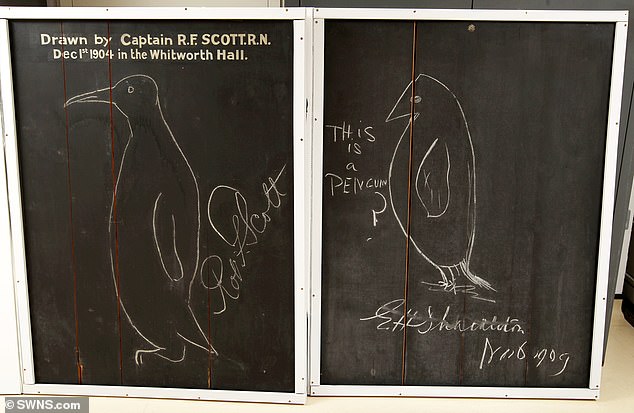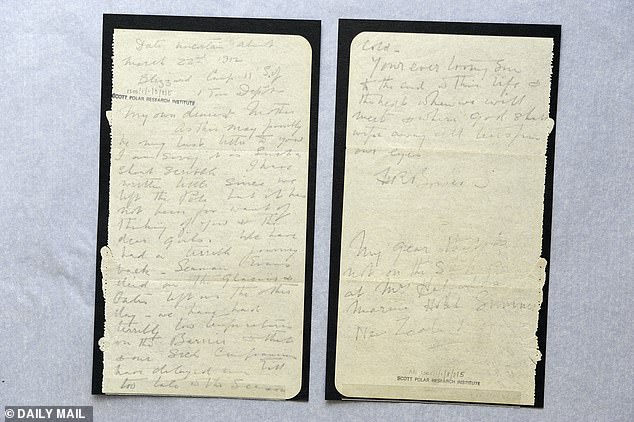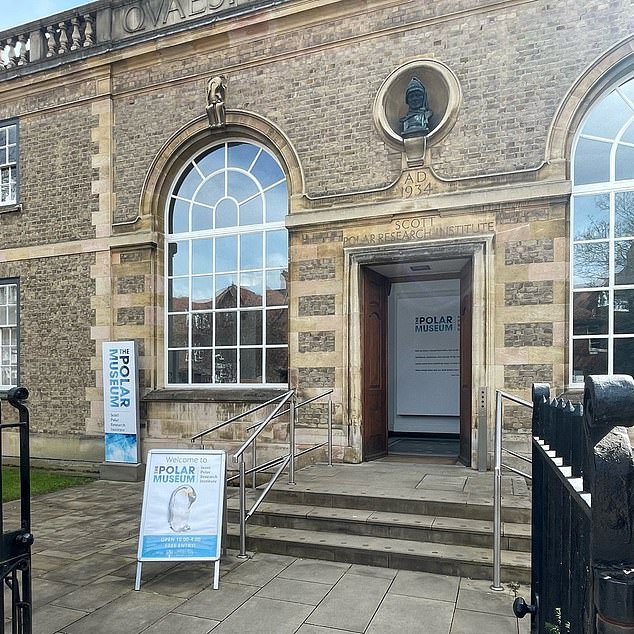The exploration of Antarctica was an example of colonialism despite only penguins living there, Cambridge University has claimed.
Its Polar Museum looks after 5,000 objects, including artefacts linked to explorers Robert Falcon Scott and Ernest Shackleton.
But in the latest effort by the university’s museums to deal with subjects related to empire, signs have been put up as part of a project aimed at ‘confronting Cambridge’s colonial story’.
These inform visitors that the daring and often fatal expeditions to the South Pole were ‘in the colonial mould’.
This is despite the continent having no inhabitants, aside from penguins, to conquer or exploit at the time.
A sign for an Antarctic display at the museum reads: ‘The colonised Antarctic? At the beginning of the 20th century little was known about Antarctica.
‘This set the stage for a number of famous expeditions to reach the South Pole. At the same time, these expeditions were in the colonial mould – claiming land, mapping, prospecting for resources, even sending stamps as a sign of ownership.’
The label adds: ‘The only difference was that there was not an indigenous population in Antarctica.’ The Cambridge Dictionary defines colonialism as ‘the belief in and support for the system of one country controlling another’.

The University of Cambridge’s Polar Museum looks after 5,000 objects, including artefacts linked to explorers Robert Falcon Scott and Ernest Shackleton (pictured)

A sign for an Antarctic display at the museum reads: ‘The colonised Antarctic? At the beginning of the 20th century little was known about Antarctica

In the latest effort by the university’s museums to deal with subjects related to empire, signs have been put up as part of a project aimed at ‘confronting Cambridge’s colonial story’
However, the Oxford Dictionary Of Human Geography defines it as: ‘The control over one territory and its peoples by another.’
The signage was installed as part of the university’s ‘Power and Memory’ project, which addresses the institution’s links to colonialism, empire and slavery, The Sunday Telegraph reported.
As part of this, the Polar Museum carried out work to reveal ‘hidden histories’ in its collection to show a different side to Arctic and Antarctic exploration.
One sign states that during meetings between explorers and indigenous populations, ‘colonial expeditions would usually hold the power’.
Others draw attention to the contribution by black people in the field of polar research.
It comes as the university’s Fitzwilliam Museum hosts an exhibition, Rise Up, about the history of slavery and its abolition.
The catalogue claims that physicist Stephen Hawking, and others, benefited from slavery-derived funds given to Cambridge 200 years before he was born. Professors and historians, however, have accused the museum’s bosses of misreading history.







